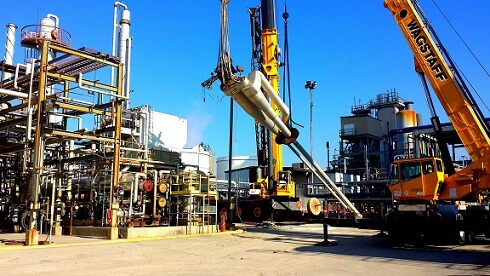Low Sulphur Fuel Oil Impact on Pumps Guide
In January 2020 the Sulphur limit used within fuel oil on board ships comes into force with a limit of 0.5% outside the current emission control areas by MARPOL.
This can cause a number of issues within pumps due to its low viscosity, low lubricity, contaminants and lack of understanding of how the change in fuel can affect pumps.
Low Viscosity
One of the changes with Low Sulphur Fuel Oil or low Sulphur Diesel Oil is the change in viscosity. Typically fuel oils used in engines can be as high as 1500cst however the new fuel oils can have viscosities as low as 2-3cst. Although easier to handle this can cause a number of issues, as being less viscous the liquid can leak more easily from joints, connections and seals thought of as sound previously would now require changing.
Fuel feed pumps onboard vessels are positive displacement pumps which inherently through their design prefer viscous fluids as low viscosity fluids can slip back towards the inlet when pumped. Furthermore, positive displacement pumps generate higher pressures and flow with viscous liquids than thin fluids meaning if existing pumps are used on less viscous liquids it is quite possible that required pressures and flows can not be met.
Typically on a screw pump, finer screws are used to accommodate low viscosity liquids to ensure pumps can meet the required duty point.
Due to the low viscosity there can be a temptation to use centrifugal pumps which can handle low viscosities similar to water however these would not generate the required pressures and also centrifugal pumps are designed for a single duty point meaning once the impeller begins to wear they will not be able to reach the required duty point rendering them useless.
Low Lubricity
Low Sulphur fuel oil has a low lubricity and can contain contaminants. Due to its low lubricity pumps can suffer from a type of wear called adhesive wear where pump internal parts stick accelerating wear. Existing seals may need to be changed to deal with the challenges of the new fluid. Gear pumps require the teeth to be replaced to ensure compatibility with the new fluid and it can also mean a change in the gearbox if the RPM of the pump changes.
It is important that any fuel feed or fuel circulation pumps be specified correctly for the change to low Sulphur fuel oil to ensure that unexpected stoppages do not occur.
Speak to us to ensure your pumps are specified correctly.





